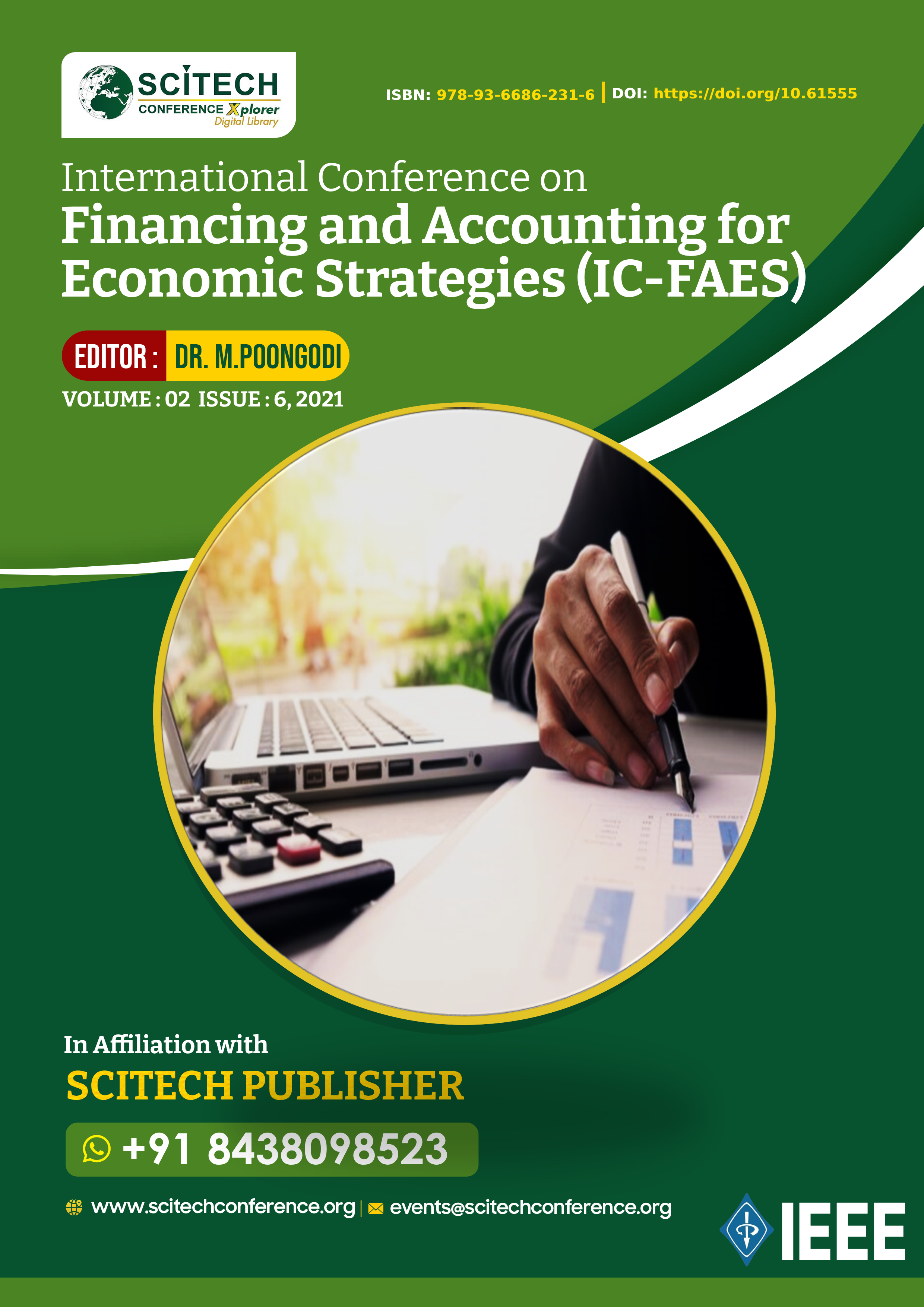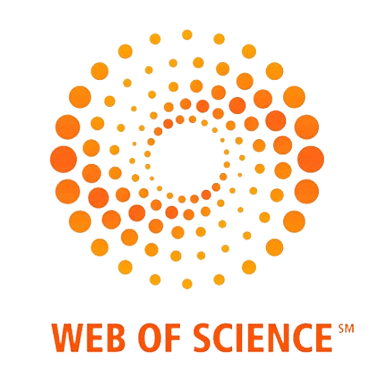International Conference on Financing and Accounting for Economic Strategies (IC-FAES)

Articles
The Impact of Artificial Intelligence on Management Productivity and Efficiency
Dr.shaifali garg, Dr Bhadrappa Haralayya, Mohammad ali AL Qudah, Lakshmana Phaneendra Maguluri, András SZEBERÉNYI, Aws Zuhair Sameen
Year: 2021| Conference Paper | Publisher: Scitech Conference Xplorer
Abstract:
Medical Dataset Classification Using Ensemble Feature Selection And Back Propagation Neural Network Algorithm
Dr.T. Christopher, N. Kumar
Year: 2021| Conference Paper | Publisher: Scitech Conference Xplorer
Abstract:
Advancing Sustainable Energy with Water-Responsive Materials
Yaewon ParkaandXi Chen
Year: 2021| Conference Paper | Publisher: Scitech Conference Xplorer
Abstract:
Advancing Renewable Energy: A Review of Organic/Inorganic Solar Cell Performance for Sustainable Photovoltaic Technologies
J. Ajayan, D. Nirma,l P. Mohankumar , M. Saravanan M. Jagadesh, L. Arivazhagan
Year: 2021| Conference Paper | Publisher: Scitech Conference Xplorer
Abstract:
Unlocking Sustainable Energy Solutions with Phase Change Material-Integrated Latent Heat Storage Systems
Waseem Aftab, Ali Usman, Jinming Shi, Kunjie Yuan, Mulin QinaandRuqiang Zou
Year: 2021| Conference Paper | Publisher: Scitech Conference Xplorer
Abstract:
Tailored Energy Engineering Curricula for Sustainable Development: Addressing Underserved Areas
Ulpiano Ruiz-Rivas, Jorge Martinez-Crespo, Maria Venegas, Monica Chinchilla-Sanchez
Year: 2021| Conference Paper | Publisher: Scitech Conference Xplorer
Abstract:
Accelerating Sustainable Energy Storage Material Discovery through Quantum Chemistry-Informed Active Learning
Hieu A. Doan , Garvit Agarwal, Hai Qian, Michael J. Counihan, Joaquín Rodríguez-López, Jeffrey S. Moore, and Rajeev S. Assary
Year: 2021| Conference Paper | Publisher: Scitech Conference Xplorer
Abstract:
Exploring Redox-Active Organic Compounds for Sustainable Future Energy Storage Systems
Sechan Lee, Jihyun Hong, Kisuk Kang
Year: 2021| Conference Paper | Publisher: Scitech Conference Xplorer
Abstract:
Unlocking Sustainable Energy: Harnessing Terrestrial Radiative Cooling from the Cold Universe
XIAOBO YIN, RONGGUI YANG, GANG TAN, AND SHANHUI FAN
Year: 2021| Conference Paper | Publisher: Scitech Conference Xplorer
Abstract:
Scoping Renewable Energy: A Review on Sustainability and Environmental Impact
Svitlana Kolosok ,Yuriy Bilan ,Tetiana Vasylieva ,Adam Wojciechowskiand Michał Morawski
Year: 2021| Conference Paper | Publisher: Scitech Conference Xplorer
Abstract:
International Conference on Sustainable Energy and Materials Engineering (ICSEME)
International Conference on Biomedical Robotics and Computational Imaging (ICBRCI)
International Conference on Smart Cities and Civil Infrastructure (ICSCCI)
International Conference on Aerospace Technologies and Data Science (ICATDS)
International Conference on Renewable Resources and Chemical Engineering (ICRRCE)
International Conference on Cyber-Physical Systems and Electrical Engineering (ICCPSE)
International Conference on Robotics in Manufacturing and Environmental Engineering (ICRMEE)
International Conference on Advanced Materials and Mechanical Engineering (ICAMME)
International Conference on Nanotechnology for Electrical Systems (ICNES)
International Conference on Geotechnical Innovations and Computer-Aided Design (ICGICAD)
International Conference on Water Resources and Environmental Engineering (ICWREE)
International Conference on Intelligent Transportation Systems and Structural Engineering (ICITSE)
International Conference on Sustainable Energy and Materials Engineering (ICSEME)
International Conference on Biomedical Robotics and Computational Imaging (ICBRCI)
International Conference on Smart Cities and Civil Infrastructure (ICSCCI)
International Conference on Aerospace Technologies and Data Science (ICATDS)
International Conference on Renewable Resources and Chemical Engineering (ICRRCE)
International Conference on Cyber-Physical Systems and Electrical Engineering (ICCPSE)
International Conference on Robotics in Manufacturing and Environmental Engineering (ICRMEE)
International Conference on Advanced Materials and Mechanical Engineering (ICAMME)
International Conference on Nanotechnology for Electrical Systems (ICNES)
International Conference on Geotechnical Innovations and Computer-Aided Design (ICGICAD)
International Conference on Water Resources and Environmental Engineering (ICWREE)
International Conference on Intelligent Transportation Systems and Structural Engineering (ICITSE)
International Conference on Sustainable Energy and Materials Engineering (ICSEME)
International Conference on Biomedical Robotics and Computational Imaging (ICBRCI)
International Conference on Smart Cities and Civil Infrastructure (ICSCCI)
International Conference on Aerospace Technologies and Data Science (ICATDS)
International Conference on Renewable Resources and Chemical Engineering (ICRRCE)
International Conference on Cyber-Physical Systems and Electrical Engineering (ICCPSE)
International Conference on Robotics in Manufacturing and Environmental Engineering (ICRMEE)
International Conference on Advanced Materials and Mechanical Engineering (ICAMME)
International Conference on Nanotechnology for Electrical Systems (ICNES)
International Conference on Geotechnical Innovations and Computer-Aided Design (ICGICAD)
International Conference on Water Resources and Environmental Engineering (ICWREE)
International Conference on Intelligent Transportation Systems and Structural Engineering (ICITSE)

+91 9888374777
icmsetm@scitechconference.org







